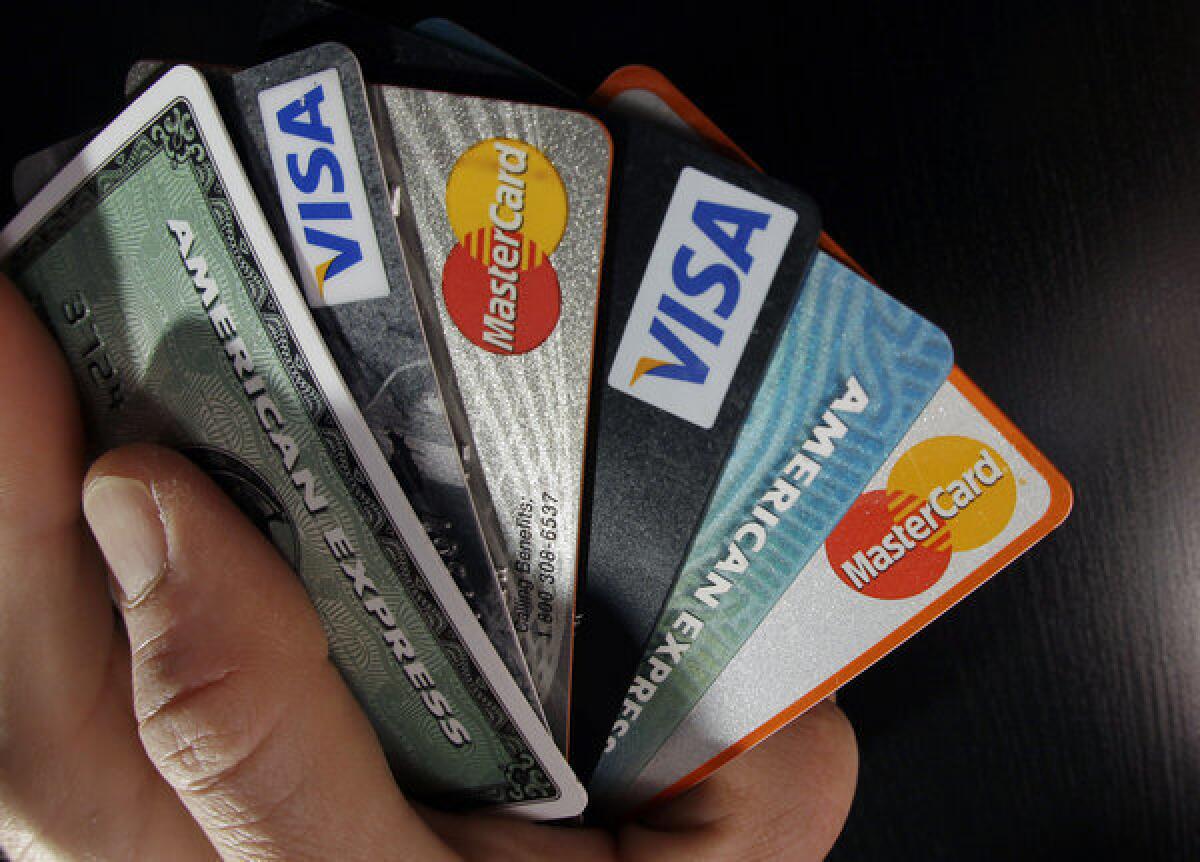Credit card delinquency rate falls to lowest level in 19 years

- Share via
The nation’s credit-card delinquency rate declined to its lowest level in nearly two decades in the second quarter, according to a survey released Tuesday.
The rate of payments that are at least 90 days overdue fell to 0.57% in the second quarter from 0.63%. It was the lowest level since 1994, according to TransUnion, the personal credit-rating company.
The average second-quarter rate over the last 13 years is 1.07%. The current delinquency rate is within a fraction of the all-time low of 0.56% in 1994.
The improvement comes amid a reviving economy and Americans’ somewhat chastened spending and credit habits in recent years. Many people have tried to whittle down sizable debt loads in the aftermath of the 2008 global financial crisis.
New-found frugality has its limits, though. The average person still had nearly $5,000 in credit-card debt, $4,965 in the second quarter versus $4,971 a year ago, according to TransUnion. Average cardholder debt climbed from $4,875 in the first quarter of this year.
“While we did observe a quarterly rise in debt, we would need to see a few more quarters of increases to describe it as a significant trend,” said Ezra Becker, vice president of research and consulting in TransUnion’s financial services business unit.
Another recent TransUnion survey points up that not all Americans are reforming their financial habits.
Nearly a quarter of those surveyed had abandoned their New Year’s financial resolutions, according to a survey released last week. And almost a third had accomplished less than half of their goals.
ALSO:
Workers getting more vacation time, but fewer paid sick days
Retirees are facing a declining standard of living in old age, study says
Retirement woes: Many Americans say they can’t retire until their 70s or 80s
Follow Walter Hamilton on Twitter @LATwalter
More to Read
Inside the business of entertainment
The Wide Shot brings you news, analysis and insights on everything from streaming wars to production — and what it all means for the future.
You may occasionally receive promotional content from the Los Angeles Times.










